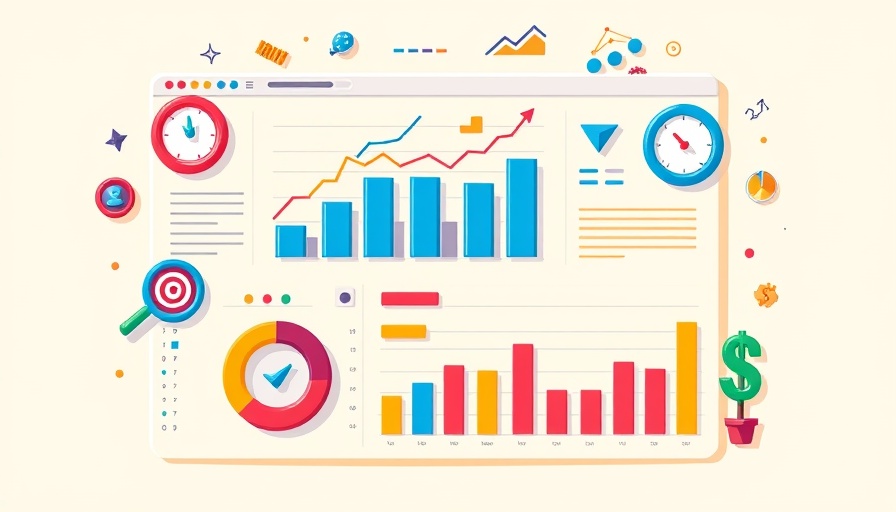
Unlocking Bing SEO: Discover Hidden Opportunities
When it comes to search engine optimization (SEO), most small business owners and marketers immediately think of Google. However, overlooking Bing could mean missing out on a treasure trove of untapped potential. In a world where digital visibility is paramount, Bing offers unique features and advantages that could enhance your online marketing strategy.
Why Bing Matters for Small Business Owners
Bing powers over 6% of global search traffic, which might not seem substantial compared to Google, but when you're aiming for visibility, those percentages translate into significant opportunities for small businesses. This segment of search traffic can be especially valuable given that Bing is the default search engine for Windows 10 and 11 devices, as well as for voice search on Cortana.
Moreover, Microsoft’s integration of Bing with various tools and services—including the Microsoft Advertising platform—affords small business owners access to robust marketing analytics that can turn insights into actionable strategies. For instance, Bing’s keyword planner provides keyword suggestions based on real data, giving marketers a head start in optimizing their content effectively.
The Unique Features of Bing SEO
Bing's algorithm diverges from Google's in several ways, creating opportunities for businesses that understand these nuances. For one, Bing places a heavier emphasis on page load time and social signals. A well-optimized website that loads quickly can provide a competitive edge. Additionally, Bing rewards content that is tailored for local intent, making it an ideal platform for businesses targeting local clientele.
Features like Bing Places for Business allow for simpler management of local listings, enabling small business owners to maximize their online presence without the convoluted processes often encountered elsewhere. Furthermore, Bing's Image Search capabilities lead to higher engagement rates in certain niches, highlighting the importance of optimizing visual content.
Leveraging AI for Bing SEO
Artificial intelligence (AI) is revolutionizing the way businesses optimize their online presence. Tools powered by AI can analyze consumer behavior and keyword trends on Bing, identifying what potential customers are looking for and how they are interacting with content. Marketers can utilize AI-driven tools to streamline their Bing SEO strategies, offering tailored content that resonates with users and meets their needs.
AI is also integral to enhancing ad targeting, ensuring that the right audience sees your promotions. By adopting AI-driven SEO practices, small business owners can expect higher conversion rates and improved ROI from their Bing campaigns.
The Power of Human-Centric Storytelling in SEO
While technical aspects of SEO are crucial, the emotional connection you build with your audience can set your brand apart. Engaging storytelling is vital in today's marketing landscape, enriching user experience and establishing trust. By incorporating human-centered narratives into your Bing content, you can create compelling articles or ads that resonate deeply with potential customers.
Sharing customer testimonials, success stories, or relatable brand experiences not only enhances SEO but also cultivates loyalty, converting casual browsers into dedicated clients. Remember, the heart of effective marketing lies in understanding and connecting with your audience.
Future Predictions for Bing SEO
The digital marketing landscape is always in flux, and staying ahead requires foresight. Analysts predict that with advancements in AI and machine learning, platforms like Bing will become more intuitive, providing smarter search results and personalizing user experience further. This evolution will necessitate marketers to adapt their strategies accordingly.
As voice search technology continues to grow, Bing's role in that space is crucial. Business owners should consider optimizing their content for voice searches to capture that growing segment of the audience. Innovation and adaptability are the keys to success in navigating the ever-changing landscape of SEO.
Conclusion: Take the Leap with Bing
With its unique features, increasing relevance in voice search, AI integration, and potential for robust storytelling, Bing offers small business owners valuable opportunities to stand out in a crowded market. Don’t let the perception of Bing as a secondary search engine deter you from maximizing its potential. This underutilized platform might just have the hidden gems that your SEO strategy needs to shine.
To dive deeper into optimizing your marketing strategies with AI and explore the exciting features of Bing, it’s time to prioritize your submission to expert resources and forums. Stay ahead of the curve and leverage these insights today!
 Add Row
Add Row  Add
Add 




Write A Comment